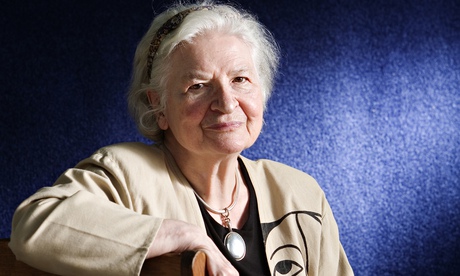
Phyllis James was not a writer who simply viewed murder as an excuse for a story. All her crime novels – whether starring her tall dark and handsome detective Adam Dalgliesh, who has not only written but actually published poetry, or her female detective Cordelia Gray – are serious explorations of the world in which they are set. An Anglican theological college in Death in Holy Orders or a long-established publishing firm in Original Sin provide the backdrop for a rigorous and unsentimental look at how English society works. She had a background as a civil servant in the criminal section of the Home Office and, later, as a life peer and governor of the BBC, that brilliantly qualified her for the task of analysing how the establishment works.
Her hero Dalgliesh, unlike so many other gentlemen detectives, is a serious and substantial figure, while Cordelia Gray is a totally credible struggling private eye who owes more to Raymond Chandler than the golden age of the English detective story.
Her original fiction, such as Innocent Blood, or her brilliant piece of dystopian science fiction The Children of Men, reveals a writer of true originality. The first is a dark study of an adopted girl finding out about her real parents and the second portrays a world in which human beings are finding it harder and harder to reproduce. What she shows in both novels is the ability to put together a suspenseful narrative that has nothing whatsoever to do with the crossword puzzle.
She dedicated her fragment of autobiography Time to Be in Earnest to Rosemary Goad, her lifelong friend and editor at Faber and Faber, and her loyalty to that firm, as well as her unfailing courtesy to those who worked there, remains a proof of the fact that, with her, Christianity was not an affectation or an intellectual fad – it was a reason for behaving well. She had not had an easy life. Her much-loved husband suffered mental difficulties and died tragically young. Success – and the money that comes with it – did not arrive quickly. Perhaps that was another reason she was always so concerned to look after the weakest person in the room.
I met her because we shared a publisher and I found her, always, kind, witty and full of good advice about books, people and, of course BBC politics. She was a governor who took her responsibilities seriously and did not make the mistake of treating programme makers as ignorant children. She was funny, warm, self-critical and never puffed up by her celebrity or her many achievements.
I shall never forget her, as we were going together into a large party, turning to me at the doorway and saying: “Nigel, there will be people at this party to whom I will not introduce you. Do not be offended. This is simply because I will be unable to remember who they are.”

